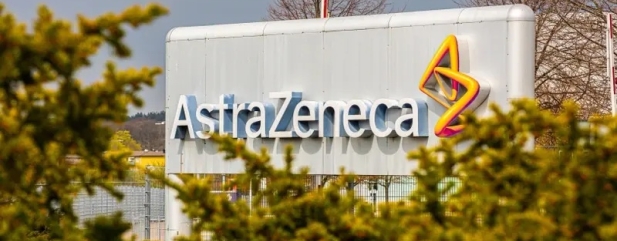Archived article
Please note that tax, investment, pension and ISA rules can change and the information and any views contained in this article may now be inaccurate.
Why AstraZeneca shares remain in the doldrums despite raised outlook

One might reasonably expect a company’s share price to rally when it delivers earnings ahead of consensus forecasts and raises its outlook, especially when the shares have dropped 25% heading into the numbers.
That is not how things played out at the UK’s largest listed company AstraZeneca (AZN) on 12 November, however, with the shares failing to respond positively.
The company issued a raft of announcements including plans to invest $3.5 billion in the US to expand its research and manufacturing capabilities by the end of 2026.
Yet another piece of good news. Even positive comments from long-time chief executive Pascal Soriot could not excite investors: ‘We are highly encouraged by the broad-based underlying momentum we are seeing across our company in 2024, and growth looks set to continue through 2025,’ exclaimed Soriot.
So why the downbeat response?
Investors appear concerned by recent investigations and the detainment of current and former AstraZeneca employees by the Chinese authorities around allegations of medical insurance fraud, illegal drug importation and personal information breaches.
For its part, AstraZeneca is adamant it has not received any notification that it is being investigated.
The drug business can be unpredictable, and sometimes the science does not work out as hoped, and this seems to be the case with AstraZeneca’s investigative cancer treatment Dato-DXd, which is in development with Japanese drug giant Daiichi Sankyo (4568:TYO).
Following disappointing late-stage trial readouts and feedback from the US FDA (Food and Drug Administration), the company has decided to voluntarily withdraw its application for accelerated approval to treat patients with advanced lung cancer.
AstraZeneca is resubmitting a new application based on results from a mid-stage TROPION-lung-05 phase two trial.
Analyst Sean Conroy at Shore Capital believes Dato-DXd is an important asset in the company’s pipeline with ‘significant blockbuster potential’.
Setbacks like this are part of the drug discovery business and are the reason why pharmaceutical and biotechnology companies build a broad portfolio of assets to diversify the overall risks of failure.
On this score, AstraZeneca has built one of the strongest drug pipelines drugs in the industry. The company raised its full-year EPS (earnings per share) growth forecast to the upper-teens from mid-teens, reflecting ongoing momentum across the business.
The recent drop in the shares has wiped around £50 billion from the company’s market value and takes the valuation of the business to back to the sector average, notes Conroy.
‘We still believe a premium is warranted based on its earnings growth and pipeline prospects,’ adds the analyst.
Important information:
These articles are provided by Shares magazine which is published by AJ Bell Media, a part of AJ Bell. Shares is not written by AJ Bell.
Shares is provided for your general information and use and is not a personal recommendation to invest. It is not intended to be relied upon by you in making or not making any investment decisions. The investments referred to in these articles will not be suitable for all investors. If in doubt please seek appropriate independent financial advice.
Investors acting on the information in these articles do so at their own risk and AJ Bell Media and its staff do not accept liability for losses suffered by investors as a result of their investment decisions.
 magazine
magazine








